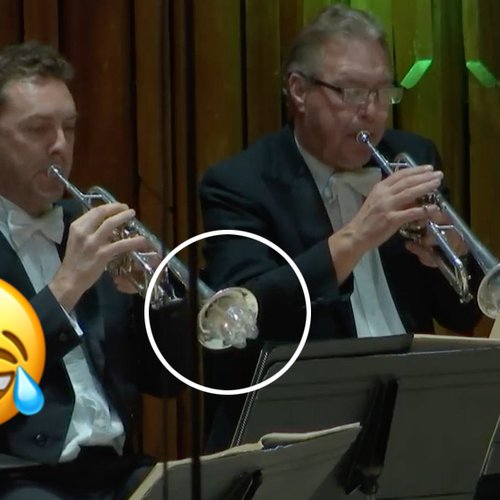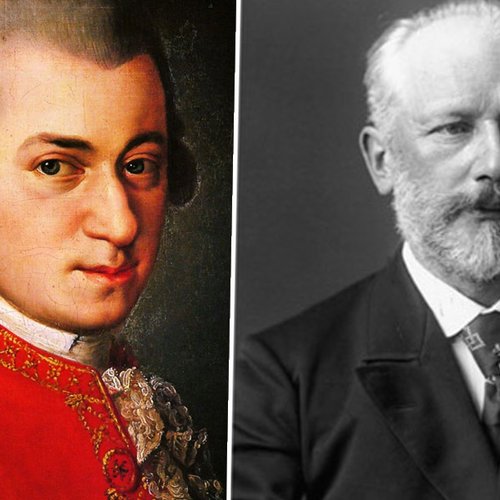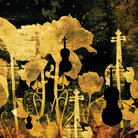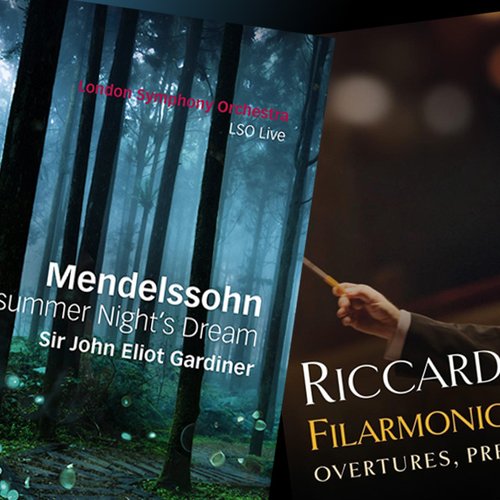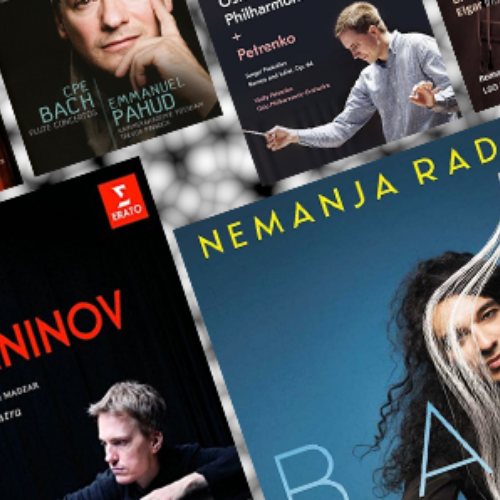From The Back Desk - David Jackson, London Symphony Orchestra
8 July 2013, 10:58 | Updated: 9 July 2013, 17:52
Working with John Williams, karaoke in Japan and hitting things for a living - discover life in the percussion section of the London Symphony Orchestra.
Name: David Jackson
Instrument: Percussion
Ensemble: London Symphony Orchestra
Why did you decide to become a musician?
This one is well-documented and a fairly common answer for gentleman of a certain age in the LSO. I was a huge Star Wars fan back in the '70s. I was six years old when the film was released and I saw it at the cinema over 10 times; many more since then. Music was in my family. My parents were both school teachers but my father was a fabulous organist and my mother sang in many notable performances with the local operatic society. Aside from the huge impact the film had on my imagination, the music formed a large part of the soundtrack to my youth. I remember badgering my mother to get hold of the original soundtrack LP and being somewhat disappointed when she came home with record of Star Wars music but not the original soundtrack. When I eventually got my hands on the real deal, the double album no less, there were no sleeve notes; only the title, the iconic white on black STAR WARS with the words underneath, "Music composed and conducted by John Williams, performed by the London Symphony Orchestra".
I remember thinking what a fabulous job that would be to play this music for films like that. So I gave up on my dream to be the next drummer in The Bay City Rollers and decided the LSO was for me. Having performed on all the recent Prequel Star Wars scores, with John Williams at the helm again, as well as many other film scores, I still get a huge buzz from that genre of work.
What's the one performance from your career that sticks in your mind?
One performance that sticks in my mind was a 1989 concert with the National Youth Orchestra of Great Britain. It was the third act of Wagner’s Die Walkure with a young Mark Elder at the helm. Dame Gwyneth Jones sang Brunhilde, Simon Estes sang Wotan and Jane Eaglin sang Sieglinde. At a time in one's life when you are like a sponge, soaking up so many influences and enjoying a shared experience with like-minded people, the collective musical force surrounding each player in the orchestra that year is something that will stay with me always.
What's the most embarrassing thing that's happened to you on stage?
Sadly, that's an easy one! The piece – Britten’s Young Person’s Guide to the Orchestra. The conductor – fortunately for me, it was the always good-natured, good-humored and now much missed Richard Hickox. The percussion instruments required – everything but the kitchen sink. Including the whip, which, having already been used in the first half was mistakenly cleared away at the interval.
Those who know the piece will be aware that virtually every single section and instrument has a small solo in the piece. So imagine, if you will, the horror as the percussion variation begins and I just give a quick eye over my station. Xylophone – check. Tambourine – check. Whip…? Cue frantic gesturing up and down the section, to no avail.
The moment arrives and instead of a loud whip crack at the appropriate high point there is the almost inaudible click of my xylophone mallets being struck together. The Evening Standard Critic was none too kind as I recall. Not my finest hour.
If you could work with one musician, living or dead, who would it be and why?
I’ve been fortunate to work with many of my heroes in music. John Williams is the consummate craftsman in the recording studio. Whilst others synchronise the music with the film to strict time codes using all sort of technical wizardry, John has a clock, a hand-written short orchestral score with his notes as to how many seconds need to elapse before he hits his next cue and produces performance after performance with complete musical integrity and remarkable accuracy.
I saw Buddy Rich play with his eponymous Big Band when I was in my teens. There, to me, was a master musician who happened to play the drums like no one else. The LSO has accompanied a few jazz greats over the years including Dave Brubeck, Wynton Marsalis and Lalo Schifrin. To have shared the stage with Buddy Rich would have been amazing having seen his energy and dynamism, not to mention his frankly superhuman technique, from a seat in the audience.
However, for the sheer pleasure of making great music together Bernard Haitink is for me the master. A gentleman on and off the podium with a quiet authority that simply brings out the best in those musicians that play for and with him.
In concert, have you ever thought, "I can't actually play this bit very well, I'm going to mime and hope no-one notices"?
That's a bit tricky with percussion! The trouble with my department of the orchestra is that generally we are the only person playing a particular line whether it be pitched or un-pitched instrument wise. To leave something out would probably attract more attention than making a concerted effort to play the part. Over my 20 years of playing with the LSO I would never make the claim that I could have played every single note that was put in front of me. Often rehearsals are limited as is practice time in between the tutti rehearsals and the sheer volume of material that a London orchestral player gets through can be staggering. Then there are the recording sessions where often, the scores we are presented with are still warm from the laser printer. The ability to sight-read quickly and to spot any potential black spots is a skill which is vital in our line of work. One always strives for perfection, even in the most difficult of passages. In the words of the great James Blades, whose lecture class I remember my parents taking me to when I was about 8 years old, "If in doubt, give it a clout!"
Could you give us an example of the downside of the profession, something that the average concert-goer might not know about?
Hmmm… this is awkward! As I type the answer to this question, I am currently sat on the terrace of my rented apartment in Aix-en-Provence in 34C of Cote d’Azur Sun having just had a dip in the pool! The LSO is currently on tour as the resident orchestra of Festival d’Aix – 5 weeks of opera and Youth Orchestra coaching. Downside? Erm…
However, there are those members of the orchestra who chose not to do this large patch of work. The schools have not yet broken up in the UK so family commitments prevent several members from doing this type of work. That in itself causes problems in that we in the LSO, like other London Orchestras, are self governing and as such do not have a salary – we get paid for the work we do and consequently income ceases if we take work off.
Does the touring lifestyle bring out rock star behaviour in the orchestra?
I can categorically state that I have never parked a Rolls Royce, or any other Marque, in a hotel swimming pool. Ever. People like to enjoy themselves and orchestral musicians are people too! Touring is a unique and unusual environment to find one’s self in but however glamorous it sounds to jet off to far-flung places on the planet, which we do, it is often extremely tiring and schedules are tight. The bars and restaurants near hotels and concert venues do good business when orchestras are in town, as do numerous karaoke establishments when we are in Japan. However, the trashing of hotel rooms and bathing in Champagne is something we leave to the professionals!
Have you witnessed any serious diva strops in your time as a musician?
Sorry to disappoint, but I can't say that I have really. I think the culture has changed over the last 20 years or so…certainly in the LSO, and the stories of artists walking out of rehearsals and making unreasonable demands of those around them haven’t surfaced for some time. We work with extraordinarily talented people and for the large part there is nothing but mutual respect from either side these days.
What's the biggest challenge facing musicians like you these days?
On a day to day basis I'd say it’s the traffic on the Marylebone Road! We constantly hear of cuts to funding and how difficult the environment is for arts organisations in the current economic climate. This means being adaptable as an organisation and as an individual. We are constantly seeking new audiences. The more people who care about and listen to orchestral music the better chance there is those orchestras will to be there to feed the public’s desire. The LSO has now performed two completely free concerts to audiences of 10,000 people in Trafalgar Square, playing complete works of a type one might not usually hear at an outdoor orchestral concert. To see that number of people listening…really listening to a performance of Le Sacre du Printemps in a setting like that gives me enormous hope that we are not part of an antiquated art form but are at the cutting edge of bringing music to a much wider audience.
What's the best thing about being a musician?
I still find it incredible that someone is willing to pay me for doing something that I love so much. Something that started out as a passion for me when I was thumping the sofa cushions with my mother’s wooden spoons, dreaming of stardom in The Bay City Rollers has now, albeit via a different route, become a career which lets me travel the world, work with incredible people and on amazing projects. It always raises a smile when I’m asked what I do for work – "I hit things for living!"
Photo credit: Kevin Leighton. The LSO are featured all this week on The Full Works Concert.


